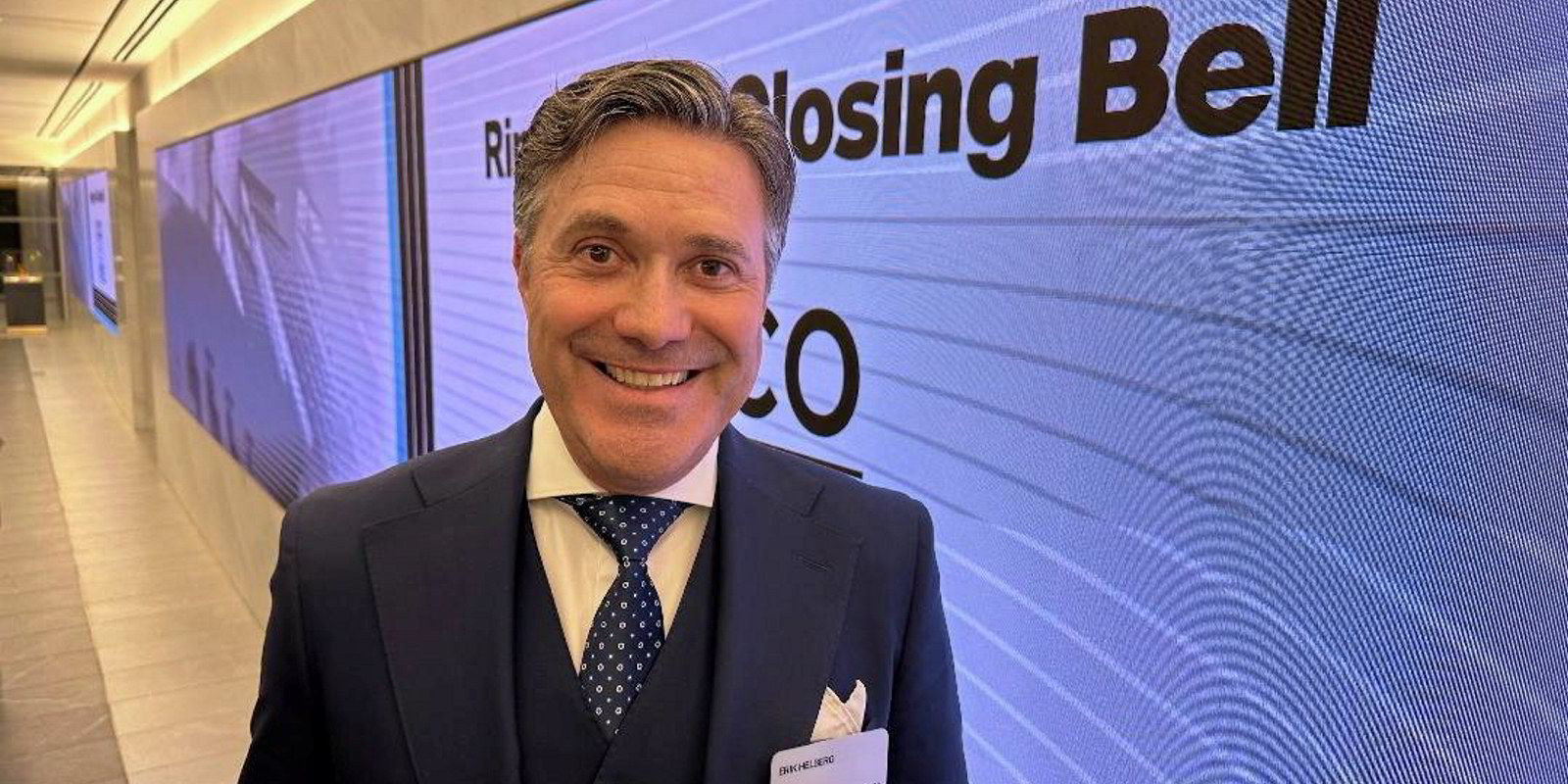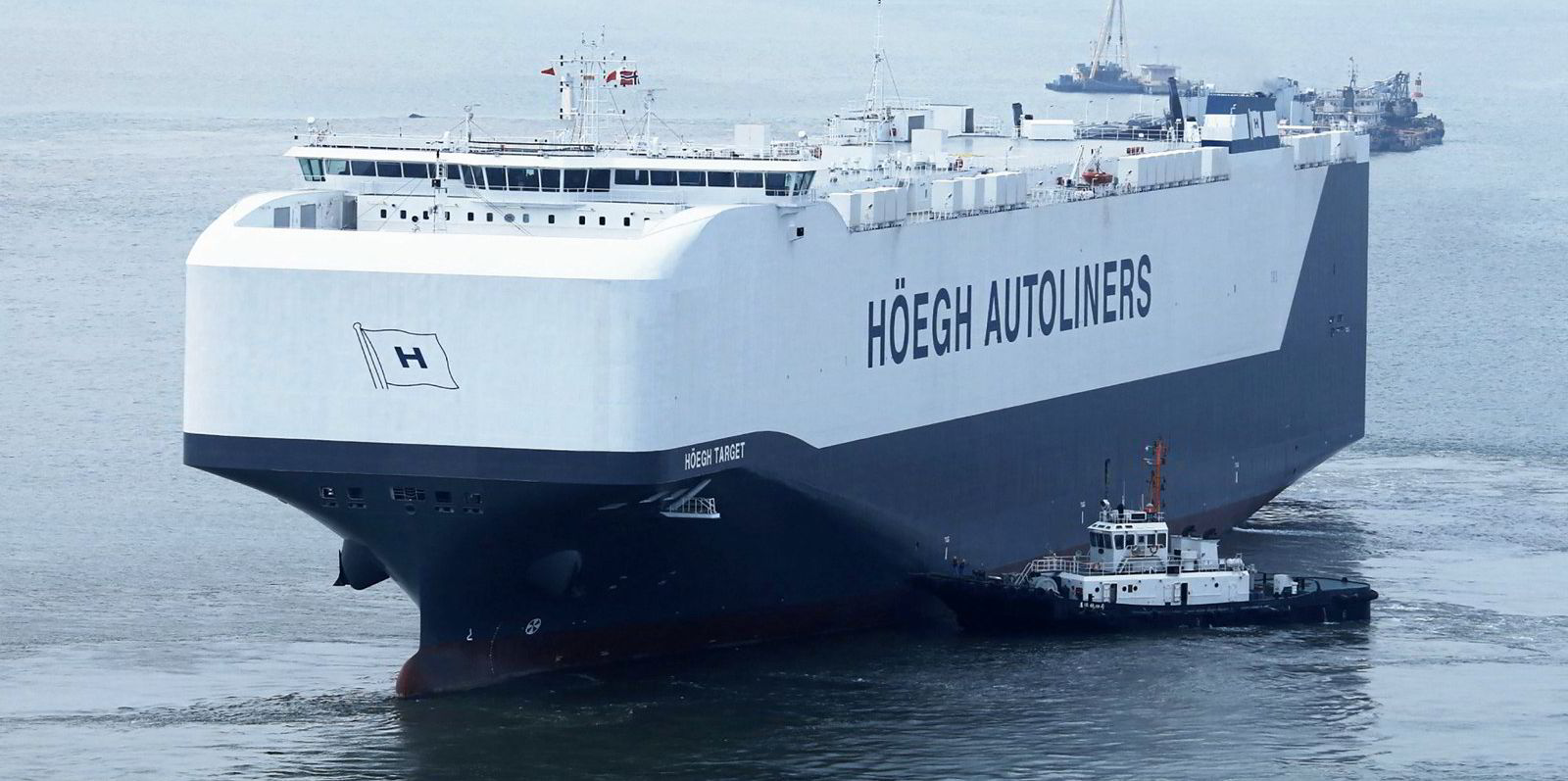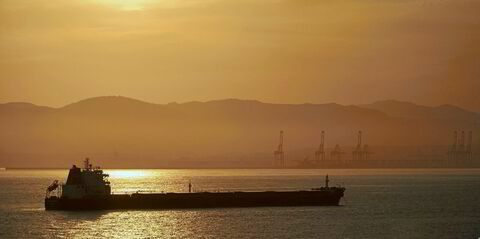Read ’em and weep.
The numbers are out for investment banks raising equity in the global capital markets for public shipowners in 2023, and the sums were the lowest in the past nine years — by far.
The statistics are laid bare in a 2023 report published by Clarksons Research.
On the brighter side of the ledger, the bond market held up much better on the year, and so did raises for the offshore oil sector.
Even the paltry figures for shipping equity raises have their roots in something positive, according to Clarksons Securities chief executive Erik Helberg.
Helberg tells TradeWinds that a multi-year upcycle for most major shipping operating sectors has left bigger companies, stronger balance sheets and less need to dip into capital raises to get by.
That will change at some point, Helberg noted, but for now, public shipowners are enjoying what he called “the harvesting period” from strong markets and are returning cash to shareholders.
Explaining the drought
“Owners have been super-focused on accumulating cash and enjoying the healthy and strong markets that we’ve had,” Helberg said in an interview.
“They’re repaying debt, strengthening balance sheets and paying out dividends. Also, with the uncertainty around future propulsion systems, they’re not investing in new assets at past levels.
“Meanwhile, investors are enjoying themselves, taking in strong returns in both share prices and dividends.”
With that explanation, here are the lean numbers for the year.
For IPOs, only three shipping deals were conducted for a total of $319m.
The number of deals was the lowest since the two flotations of 2020, while the money raised was the weakest since the $15m sourced in 2019.
However, the real impact of curtailed activity is shown in the follow-on market.
It is here where established public companies issue more of their shares to meet strategic imperatives, whether these be fleet growth in stronger markets or balance-sheet liquidity in weaker ones.
Cargo shipowners carried out only four deals worth $91m during the year.
The worst year measured by Clarksons since 2015 was the 16 follow-ons carried out in 2022. The high total for the period was 57 completed in 2017.
In dollar terms, the lowest raise was $662m for 2022. The high was $5.2bn in 2017.
Oil markets a hot ticket
It is noteworthy that the offshore oil market, resurgent after many lean years, performed better on the equity side.
While there were only two IPOs, the stakes were larger as they raised $822m — the largest total since 2015. And 15 follow-on deals brought in $529m.
From the investment banking view, the picture in the bond market was more encouraging.
Cargo shippers completed 17 deals worth $3.3bn. The number of transactions was up from 15 in 2022 but still lower than any other year in the Clarksons tables. The high of 44 came in 2021.
In dollar terms, the $3.3bn raised was the lowest since 2015 but only slightly down from the $3.7bn in 2022. The high of $6.8bn came in 2017.
Again, offshore players outstripped their shipping counterparts, completing 21 deals worth $8.2bn. This was the strongest year since the $8.7bn raised in 2022, and the most deals since the 22 completed in 2018.
The totals were also well up on the eight transactions worth $1.5bn carried out in 2022. The historical highs in offshore bond fundraising came in 2015 when 27 transactions raised $8.2bn.
So as tough as the shipping equity numbers are, it is not all bad news for an investment bank such as Clarksons Securitiesthat also plays in offshore and bonds.
“The capital markets activity within offshore energy services continued strengthening in 2023 from 2022 driven by increased investor appetite for oil services investments with strong underlying fundamentals, despite macroeconomic uncertainty with rising interest rates and inflation impacting the markets in general,” Helberg said.
Clarksons Securities executed more than $5bn in business for offshore clients, he said.
“A key trend throughout the year was refinancing of existing debt facilities in the high-yield bond market which contributed significantly to the overall transaction volumes,” Helberg said.
Clarksons expects high activity levels in 2024 in refinancing existing debt facilities plus growth financing in both public and private markets, he said. There could also be more IPOs given improved pricing on oil services companies.
The shipping picture
Shifting back to the picture for shipping, Helberg explained why the bond market has proved more popular than equity raises.

“It doesn’t come with shareholder dilution,” he said.
“A lot of companies are very wary of diluting their shareholders because there have been many years of wandering in the desert for those in the industry in poor markets. It’s now harvesting time. Companies are having a well-deserved pay time and investors are enjoying it.”
The dearth of follow-on equity deals also may have another explanation: companies are bigger in fleet size and market capitalisation than they were five or 10 years ago, so the quest for scale is less compelling.
“When you have billions of dollars in market cap, when you have big trading liquidity, when you have 100 ships in your fleet — there’s not necessarily a pressing need for another 10 when you already have 100. There’s a lot of optionality in the fleet you already have,” Helberg said.
Because many of these factors persist in 2024, Helberg was not willing to say this is the year for a marked improvement in equity raising. But he was confident that the rebound would come — it is just a matter of when.
“At some point, the attractiveness of ordering new ships to renew and lower the age of the fleet will be important,” he said.
“At some point, you’re sitting there with no debt and paying healthy dividends, but every passing year your fleet gets older. And also in time, the solutions for future fuels will become more clear.”







